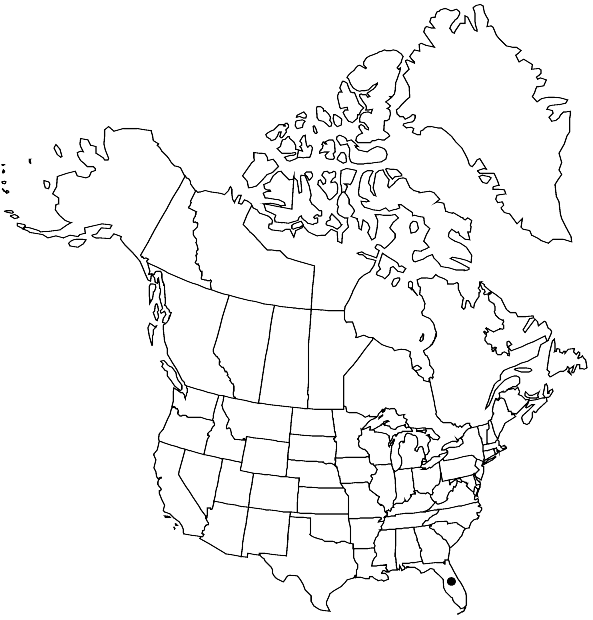Difference between revisions of "Campylopus arctocarpus"
J. Linn. Soc., Bot. 12: 87. 1869,.
imported>Volume Importer |
imported>Volume Importer |
||
| Line 49: | Line 49: | ||
|publication year= | |publication year= | ||
|special status= | |special status= | ||
| − | |source xml=https:// | + | |source xml=https://bitbucket.org/aafc-mbb/fna-data-curation/src/2e0870ddd59836b60bcf96646a41e87ea5a5943a/coarse_grained_fna_xml/V27/V27_516.xml |
|genus=Campylopus | |genus=Campylopus | ||
|species=Campylopus arctocarpus | |species=Campylopus arctocarpus | ||
Latest revision as of 21:26, 5 November 2020
Plants 1–3 cm, in dark green tufts, evenly foliate, stems reddish tomentose. Leaves 6–8 mm, erect-patent when wet, crisped when dry, lanceolate, ending in a straight concolorous tip; alar cells inflated, hyaline or (in older leaves) reddish brown; basal laminal cells rectangular, thick-walled with pitted cell walls, ca. 3–6:1, narrower and thinner walled at margins, forming a small border; distal laminal cells subquadrate to oblique or rhombic, arranged in distinct rows; costa filling up to half of the leaf width, shortly excurrent in a dentate awn, in transverse section showing abaxial and adaxial stereid bands. Specialized asexual reproduction by micro-phyllous branches. Sporophytes absent in flora area.
Habitat: Base of trees and decaying logs, cypress swamps
Elevation: ca. 5 m
Distribution

Fla., Mexico, West Indies, Central America, South America, c Africa.
Discussion
Campylopus arctocarpus much resembles C. flexuosus, to which it seems closely related, but is distinguished mainly by the different transverse section of the costa with adaxial stereids. Other examples of the phenomenon of “sister species” differing only by the transverse section of the costa are found in the genus.
Selected References
None.